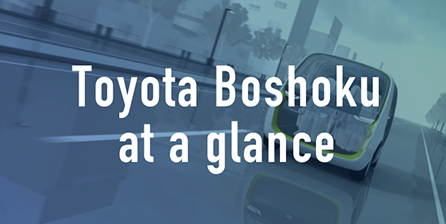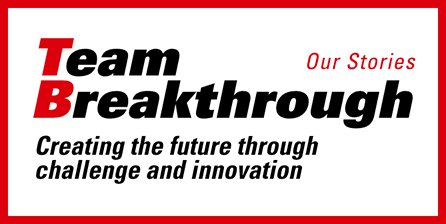2025 Environmental Action Plan
Aiming to realize the “2050 Environmental Vision,” in November 2020 the Toyota Boshoku group announced the “2025 Environmental Action Plan” to be followed in the five years to 2025, and is promoting relevant activities.
2025 Environmental Action Plan
(◆:Toyota Boshoku group ▲:Toyota Boshoku)
| Challenge 6 of the 2050 Environmental Vision | 2025 Environmental Action Plan | Related SDGs | |||||||
|---|---|---|---|---|---|---|---|---|---|
| Target | Action items | ||||||||
| Global warming prevention |
1 GHG Net-zero in the product life cycle |
◆ |
|
① | Product development that contributes to top-level fuel efficiency |
|
|||
| ② | Promote product development to support next generation automobiles | ||||||||
| ③ | Develop and commercialize a wider variety of biomass-derived products | ||||||||
| ▲ | CO2 emissions in logistics: 14% reduction compared to FY2012 |
④ | Reduce CO2 emissions through the pursuit of efficient logistics activities | ||||||
|
[Targets related to action item ④]
|
|||||||||
2 GHG Net-zero in the plant |
◆ | CO2 emissions 25% reduction compared to FY2020 | ⑤ | Minimize CO2 emissions in daily improvement activities | |||||
| ⑥ | Develop and adopt the most advanced and innovative production technologies | ||||||||
| ◆ | Adoption rate of renewable energy: 15% | ⑦ | Accelerate formulation of renewable energy scenario and adoption of renewable energy tailored for individual country/regional policy | ||||||
| ⑧ | Study potential use of next generation energy in our company with the mid to long-term roadmap | ||||||||
|
|||||||||
|
[Targets related to action items ⑤–⑧]
|
|||||||||
| Resource circulation |
3 Sustainable resource circulation |
◆ |
|
⑨ | Reduce usage of scarce resources by developing biomass and recycling technologies |
|
|||
4 Waste minimization |
◆ | Basic unit of waste emissions: 14% reduction compared to FY2012 | ⑩ | Promote minimization of wastes generated in production activities | |||||
|
[Targets related to action item ⑩]
|
|||||||||
| ⑪ | Reduce packaging materials used in logistics activities and use resources effectively | ||||||||
| Co-existence with nature |
5 Water resource impact minimization |
◆ | Basic unit of water use: 6% reduction compared to FY2014 | ⑫ | Reduce wastewater by developing water-less processes and water recycling technologies |
|
|||
|
[Targets related to action item ⑫]
|
|||||||||
6 Conservation and regeneration of natural capital |
◆ | Number of trees planted: 140,000(Cumulative total: 640,000) | ⑬ | Promote connecting forest and biodiversity conservation activities regionally and globally |
|
||||
| Management |
Environmental management |
⑭ | Promote the reinforcement of the consolidated environmental management |
|
|||||
| ⑮ | Strengthen the chemical substance management system | ||||||||
| ⑯ | Reduce the VOC* emissions from production activities | ||||||||
| ⑰ | Promote environmental activities in collaboration with business partners | ||||||||
| ⑱ | Promote environmental management in product development | ||||||||
| ⑲ | Strengthen environmental education to pass the environmental conservation activities on to future generations | ||||||||
| ⑳ | Enhance communication with stakeholders through active disclosure of environmental information | ||||||||
- Volatile Organic Compounds: organic chemicals which have a high volatility (i.e. a high vapor pressure at room temperature). This term covers 100 substances designated by Japan’s Ministry of the Environment
- Target values are based on our current business plan. These target values may be subject to future review in case of substantial changes to our business plan.
- Detailed targets are established each fiscal year, and disclosed on our website
- Our environmental initiatives plan is shared among Toyota Boshoku and Toyota Boshoku group companies





